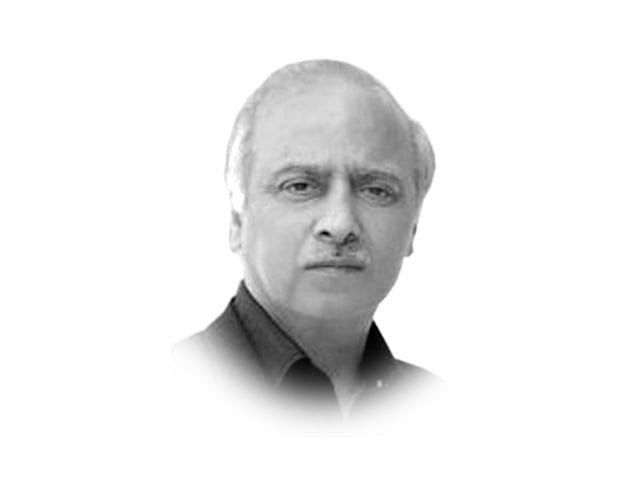Countering extremist mindset
Ruling elites shall have to stop pandering to religio-political lobbies that abhor the present edifice of Pakistan

The writer heads the independent Centre for Research and Security Studies, Islamabad and is author of Pakistan: Pivot of Hizbut Tahrir’s Global Caliphate
The federal administration — personified by the interior minister — congratulated itself for ending the sit-in without spilling a drop of blood. All the protestors, on the other hand, walked away with a sense of triumph, a sense of having first trampled the law, taken the capital and phone services hostage and then subdued the government into letting them go — unhurt, without legal consequences.
Then, a week later, even more worrying was the response of the local administration of an institution that prides itself as a high seat of learning for science and technology. It blocked a rights/responsibilities training programme, and used the distorted, incendiary feedback by two out of 21 trainees — mere 10 per cent to ask organisers out of the campus.
Some of the heads of departments — all PhDs and scientists — used a fraction of the content — lectures and discussions — of an earlier training to argue against such endeavour. These scientists literally spoke in support of the feedback by two trainees who had practically resonated demands by the wily Qadri marchers at D-Chowk.
Some even took offence as to why 20 fundamental rights of the constitution had been picked up for discussion. For them, any discussion on Equal Citizenry, or Blasphemy Law, or Respect for All faiths amounts to foreign represented a foreign agenda — as if we don’t want to treat our non-Muslim citizens as equals!
The training programme, aimed at promoting constitutional literacy, was the result of a partnership between the science and technology institution and a private think tank. The extremely enlightened and affable rector had welcomed and allowed the initiative as a good intervention for younger faculty members who interact with hundreds of students daily.
Unfortunately, some of the obscurantist heads of department at the Islamabad campus — all of them PhD scholars — failed their enlightened rector. These scientists disregarded the feedback by 90 per cent of the trainees, drew on the distorted and concocted feedback by two tunnel-visioned female trainees, and hence politicised the entire matter.
Following this insinuating response to the views of a miniscule minority of trainees, the organisers relocated the training but the alarming episode at the educational institution kicked off some major questions of real concern; if you cannot discuss issues that a small minority considers “controversial” at a science and technology university, where else?
What about the basic issue of “critical enquiry” by scientists? If the scientists don’t follow this, what then, are they teaching to their students? One of the retired soldiers, now holding an important position, and another doctor even argued not to touch “sensitive issues”. They clearly lacked the understanding on the extreme importance of the civic education for social peace and harmony.
One wonders that if science academics — who are opinion-multipliers — in Islamabad are hostage to a mindset that qualifies as radical, anti-human rights, obscurantist, can we really then condemn madaris — seminary — teachers, say in Peshawar, Kohat, Bahawalpur or Nushki ?
If such highly educated professors radiate such an alarming weltanschauung do we have a reason to crib about what a public university teachers and seminary clerics teach and preach?
In all probability, the fight against extremist ideologies and their empathisers/sympathisers will have to start in Islamabad first. While Zarb-e-Azb reflects the hard power of the state against terrorism, the civilian government — the parliament — shall have to take lead in developing the soft power of the state to counter religious extremism; curricula reform, separation of religion from politics, and an uncompromising enforcement of the rule of law are the foremost ingredients of the soft power. Therein lies the lasting, long-term success in the fight against extremism. The ruling elites shall have to stop pandering to religio-political lobbies that essentially abhor the present edifice of Pakistan.
And the sliver of hope comes from a young female lecturer of the same university — a trainee at the workshop; so much disturbing news on TV is frustrating and makes you uncertain about the future but my biggest take-away from this workshop is hope, said the young teacher.
This note from the young lady is reassuring; we have a long and tough fight at hand but hope is not lost. Let us continue this in whatever we can.
Published in The Express Tribune, April 20th, 2016.
Like Opinion & Editorial on Facebook, follow @ETOpEd on Twitter to receive all updates on all our daily pieces.















COMMENTS
Comments are moderated and generally will be posted if they are on-topic and not abusive.
For more information, please see our Comments FAQ